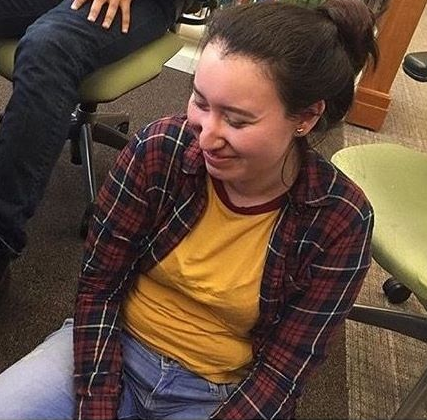The Museum of Fine Arts Boston has just concluded their 10th annual Palestinian Film Festival. The festival started on Oct. 13 and continued through Oct. 30 and featured thought provoking films that included independent and honest views of Palestine, focused mostly on its controversial politics.
Leila and Larissa Sansour each showcased their films. Leila was born in Moscow, Russia in 1966. She is a well known speaker in the film community on issues regarding the Middle East and has given speeches at the British Parliament, The Royal Institute of Foreign Affairs and dozens of other venues. Larissa Sansour was born in Jerusalem, Israel in 1973. Her art works often include elements of Western films, horror films and superheroes. The Sansour sisters returned to Bethlehem, Palestine in 1973 after residing in Moscow.
Leila Sansour’s film “Open Bethlehem” was written and directed from a personal perspective based off of when she returned to her hometown in Palestine. This film spanned over the course of seven years and was essentially a campaign to stop Israeli forces from encircling Bethlehem.
Larissa Sansour hosted a sci-fi trilogy involving issues of space with the political atmosphere in Palestine. For “A Space Exodus” the influence was said to be drawn from Neil Armstrong’s historic moon landing, which was meant to support a hopeful future for Palestine. The second film “Nation Estate” was a hint at a futuristic solution and imitates high class living.
The third and final film “In the Future, They Ate from the Finest Porcelain” depicted a blend of topics consisting of politics, archaeology and sci-fi. The underlying theme of national identity was at the forefront of the film, where a psychologist and fighter discussed events of a fictional civilization based off Sansour’s real life trauma over losing her younger sister. The significance of the use of porcelain bowls highlighted the prominent representation of how Sansour wished to culturally present Palestine. The main point restated continously was the possibility of influence over history in order to support the claims of their continuous vanishing lands.
Leila Sansour explained how she produces films with a different focus than her sister.
“My sister’s audience would be an arts audience and for me, it would be academics and campuses,” she said.
She explained that her sister chose the genre of sci-fi, because she felt as though Western culture and media could easily relate when discussing the past, present and future.
She prefaced any questions about the trilogy with an emphasis on how her sister is an artist, leaving her trilogy and original intent open to interpretation. She explained her thoughts by expressing the saying, “The artist is dead because of people’s commentary and what they want to take from a piece.”
Leila Sansour does not consider herself to be an activist, despite her politically charged world.
“Strangely enough, I guess I do consider myself politically involved,” she said. “Maybe I wouldn’t consider myself an activist because that sounds like somebody who deals with a lot of issues and also the word may be associated with protesting and I only focus on Palestine, which is my issue. ‘Activist’ conjures up a personality that I don’t possess.”
Sansour discussed how difficult it is to send a critical message about politics through a personal lens as well as have the ideal perspective shown. As a filmmaker, Sansour says “Well, it’s very tough, I have to tell my story and that was a struggle, because inevitably there has been tension in Palestine, but creating and shaping the film and making people experience my experience and communicating something makes this very challenging.”
Leila Sansour currently leads the organization Open Bethlehem as founder and chief executive officer, which was established to promote the resolution of the Israeli/Palestinian conflict by propelling Bethlehem as a gateway.







